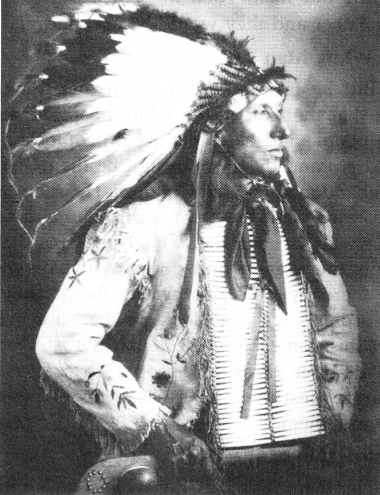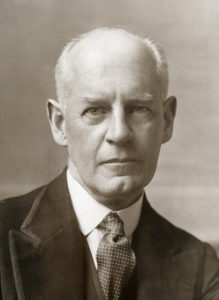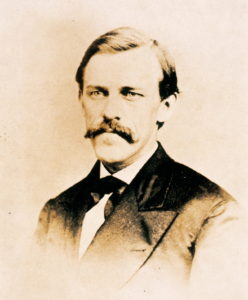We have decided to create the most comprehensive English Summary that will help students with learning and understanding.
Chief Seattle’s Speech Story Summary by Chief Seattle
Chief Seattle’s Speech Summary About the Author
Chief Seattle was the leader of Suquamish and Dwamish confederacy and a popular figure in his tribe. He was a Roman Catholic by religion who was born in 1780 AD in Blake Island. He was given a nickname ‘Le Gros’ which means ‘The Big One’ due to his height. From the very young age he had been known for his authoritative personality. He knew to different dialects of Lushooteed. He was made a leader due to his commanding quality.
He was a propeller of peace. He wanted the two different cultures, the Whites and the Natives to live harmoniously. His main aim was to ensure the rights of safety of his tribe and give .them their lands in which their ancestors’ soul had lived and which they worshipped. He laid emphasis on the ecological responsibility of human beings and believed the ideology that Earth was not meant for them but they were meant for Earth.
When Seattle and his tribe was driven away from their homeland, he met a White Settler, David Swinson Maynard who became his friend and helped him in establishing peace with neighboring tribes. He died on 7th June, 1866 AD.
Chief Seattle’s Speech Summary of the Story
‘Chief Seattle’s speech’ is a heartfelt speech to the Governor of the state of Washington. The speech was publicized on a very large scale, in which he argued in favour of ecological responsibility and respect of land rights of Native Americans. Although what he actually said has been lost through translation and writing. The speech was published in Seattle newspaper in 1887 by a pioneer who confirmed that he had heard him delivering it in 1854.

Apart from this no other record has been found. Chief Seattle delivered the speech to mark the transfer of ancestral Red Indians’ land to the federal government. He says that the great chief in Washington sends greetings of friendship and goodwill and wishes to buy their land.
This is kind on his part as he has little need of their friendship in return because his people are strong and more powerful than the Native Red Indians. Chief Seattle recalls the time when his people were larger in number but now they are reduced to a mournful memory. But he will not mourn over their untimely decay.
The young men are too aggressive and want to take the revenge even at the cost of their own lives but the old men are wise and do not want to continue their hostile attitude towards them. It was the time when the white men pushed their forefathers westward. He wishes that George Washington, who he calls as their “good father”, will protect them. His brave warriors will protect them from ancient enemies.
Then he encounters a fear that the God of white people is not their God. He only loves his people. He makes the pale face stronger and has forsaken his Red children. He cannot love his Red Indian children, so how can they be brothers. They seem to be orphans. Thus he says that they are two distinct races with separate origins and separate destinies. There is little in common between them.
He further remarks that the ashes of his ancestors are sacred and their resting place is that land whereas the whites wander away from the graves of their ancestors. The white men’s religion was written upon stone tablets by the iron fingers of their God. But the Red Indians’ religion is the tradition of their ancestors. He then says that their dead men cease to love them (the Whites) but their (the Red men’s) ancestors can never forget this beautiful world. They keep on loving its verdant valleys, murmuring rivers, magnificent mountains, valleys, lakes and bays.
He remarks that Red Mem has ever fled the approach of the White Man as the morning mist disappears before the morning sun. Grim fate seems to follow them and soon his race will disappear. But then Seattle says that they will consider the matter and before accepting President’s proposition, he had put forth the condition that they will not be denied to visit the tombs of their ancestors, friends and children anytime.
He concludes his speech by saying that when the last Red man has vanished from the earth, his memory will become myth and the shores and forests will hold the fruits of his tribe. The White Men will never be alone. He urges the White men to love and care the land as they did with all their strength, mind and heart, love and preserve it as God loves and preserves us. He believed that the dead of his community were the part of his world and said that there is no death but only a change of worlds.
Chief Seattle’s Speech Summary Theme
It is well said that nothing in this world can even have half the influence on man, as the influence of words. Words written or spoken can also move man’s all actions and thoughts. Only a collection of few letters are so powerful that they have destroyed as well as created many civilizations. They have caused revolutions too. The theme of the chapter runs around the love for nature. Seattle, the city in the state of Washington, is given the name after Chief Seattle who caused a huge sensation among the people by his overwhelming speech for the love of his land.
He left impact on the audience by using touching words. The lesson is based on the passionate and sorrowful speech made by the Chief to move the listener’s heart and wished that the people will take care of the land in the same way as he did. It raises some alarming questions that need some sincere concern like “Do the humans have authority to hold control over earth?”
Chief Seattle’s Speech Summary Characters
Chief Seattle
He is known for the speech he made in the year 1854 in response to the Governor’s proposal of buying the Natives’ land. He favours the respect of the land rights of his people. At the very early stage of his life, he became famous both as a warrior and as a leader. He also became a renowned orator. His influence was marvelous. He provoked the people by his speech over protecting and caring his ancestral land.
He was a soft hearted man who was close to nature and that’s why he expected everyone to value nature. He did not want that hostility should continue between his people and the Whites. He spoke of war from his painful experience. He believed that war would only result in loss.
Chief Seattle was philosophical in his approach. According to him, the Earth did not belonged to men but men belonged to Earth. He thought that one should treat land as their brothers. He didn’t mourn over anything but his tone was sorrowful. He asked to love and care the land because it was precious to everyone. He laid stress on the words ‘love’ and ‘care’ to show that he was really passionate about his ancestral land which he couldn’t retrieve back and didn’t want to part with it. He believed that the dead of his community were the part of his world. According to him death is only the change of worlds.
Chief Seattle’s Speech Summary Word-Meanings
- yonder – previously present, ancient times
- compassion – feeling of pity
- eternal – infinite time
- overcast – covered with cloud
- rely – have confidence
- vast prairies – large treeless area of grassland in North America
- resemble – be like
- extensive – large in area
- wind ruffled – disturbed by the current of wind
- mournful – sorrowful
- dwell – live in a place
- hastening – be quick to do something
- impulsive – done without thinking
- restrain – keep under control
- hostility – feeling of dislike
- bristling – react angrily
- forsaken – give up something valuable
- ebbing – declining
- receding – moving back
- firmament – the heaven, the sky
- hallowed – great respect, holy
- comprehend – understand something fully
- verdant – lush green
- sequestered – isolated
- yearn – longing for something
- grim – very serious
- stolidly – not excitedly
- proposition – statement
- molestation – annoying
- swelter – very hot
- somber – dark
- solitude – alone
- swarm – crowded
- cluster of people
- throng – densely packed crowd.

